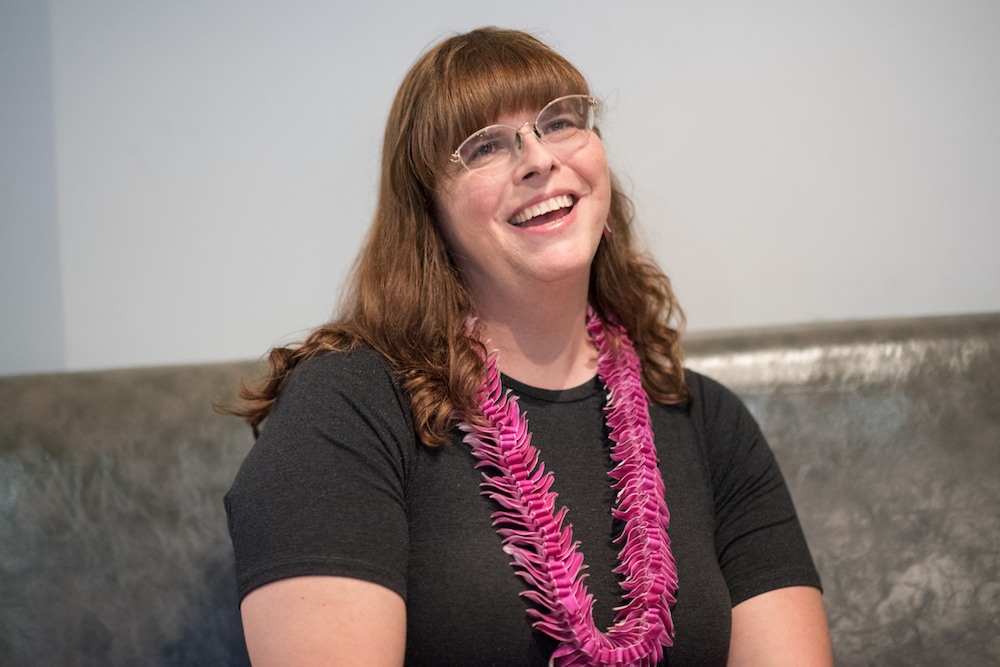
Photo by Joseph Esser.
Sarah Roberts is a Palo Alto, California-based linguist and has been investigating the linguistic history of Hawai‘i for over 20 years. She is working on a book about the languages of Hawai‘i for Cambridge University Press. Prior to taking part in a Zócalo/Daniel K. Inouye Institute “Talk Story” event titled “Will Pidgin Survive the 21st Century?,” which took place at Artistry Honolulu in Honolulu, Hawai‘i, Roberts visited the green room and shared her thoughts on the most difficult thing about being an linguist, her favorite place to eat in Palo Alto, and what she’d do with one more hour in the day.
What’s the best book you’ve read in the past year?
I read a lot of technical linguistics books, but I’m interested in other nonfiction. Gosh, I wish I could give a good answer. I was reading through Killer Show, which is a story about the Station Fire that happened a few years ago, in 2003 or so.
What’s your favorite place to eat in Palo Alto?
I like eating at SAJJ, which is a Mediterranean restaurant. I like that food so much that I’ve actually been making their salads at home. I get a chicken, and I make a pomegranate chicken, and then I get cauliflower, and I make the whole thing. So I guess that’s my favorite place.
Do you have a favorite Hawaiian pidgin phrase?
I love “go for broke,” because that is one of the few pidgin phrases that actually has entered into English around the world. It’s probably the most successful feature from Hawaiian Creole.
What’s the most surprising thing you’ve learned about Hawaiian pidgin?
About 50 percent of the population during pidgin’s development period were people of Japanese ancestry, so it’s surprising that the actual grammatical features of the language largely come from Hawaiian, Chinese, and Portuguese. There’s a lot of lexicon [vocabulary], there’s a lot of discourse markers [linking words], a lot of other things that come from Japanese, but a lot of the grammatical features don’t reflect the Japanese influence system. I’ve always found that interesting, and I have several thoughts on why that could be.
What’s the most difficult thing about being a linguist?
Oh, well, aside from people assuming that you learn lots of languages. I mean to really understand the history of pidgin, for instance, you have to learn a lot about the structures of other languages that influence pidgin, and you also need to understand a lot of social history and political history because that all ties in together. So, it really involves work in a lot of different fields of study.
What would you do if you had one more hour in the day?
If I had another hour in the day, I’d be able to write more papers, because as an academic, it all just piles up.
What profession would you like to practice in your next life?
Probably not that much different from what I do now, but I always have these other interests in history. I would love to be an archaeologist. I’m also interested in astronomy.
What advice do you give students who are considering going into academia?
Students need to follow what they find interesting and find where their talents can be best used.
What do you consider beautiful?
Family, and a good song.
What teacher or professor changed your life, if any?
My adviser at Stanford, John Rickford. He’s actually retiring this year. He had a real profound impact on me both theoretically and as well as a mentor. Definitely him.



